Every year we run a series of Summer Schools in partnership with the Sutton Trust. We have a wide range of subjects to choose from, designed to give you a taste of studying at University.
YouTube Widget Placeholderhttps://www.youtube.com/watch?v=8_OCR91aMxw
General Information
The Summer Schools are a fully immersive experience, you'll live as a student staying in accommodation overnight and meet other students from across the UK. Throughout the week you'll attend lectures, seminars, and trips across London to get a taste of what it's like to study at UCL. But it's not all academic work! We have an exciting programme of social activities planned including tours, the chance to explore London and lots of other exciting activities. There's something for everyone on our Summer School.
In 2024, our Summer Schools will be fully residential at the UCL Campus. We will also host an online welcome session ahead of the Summer School so you can meet the Summer School team and your academic leads, who can answer any last-minute questions.
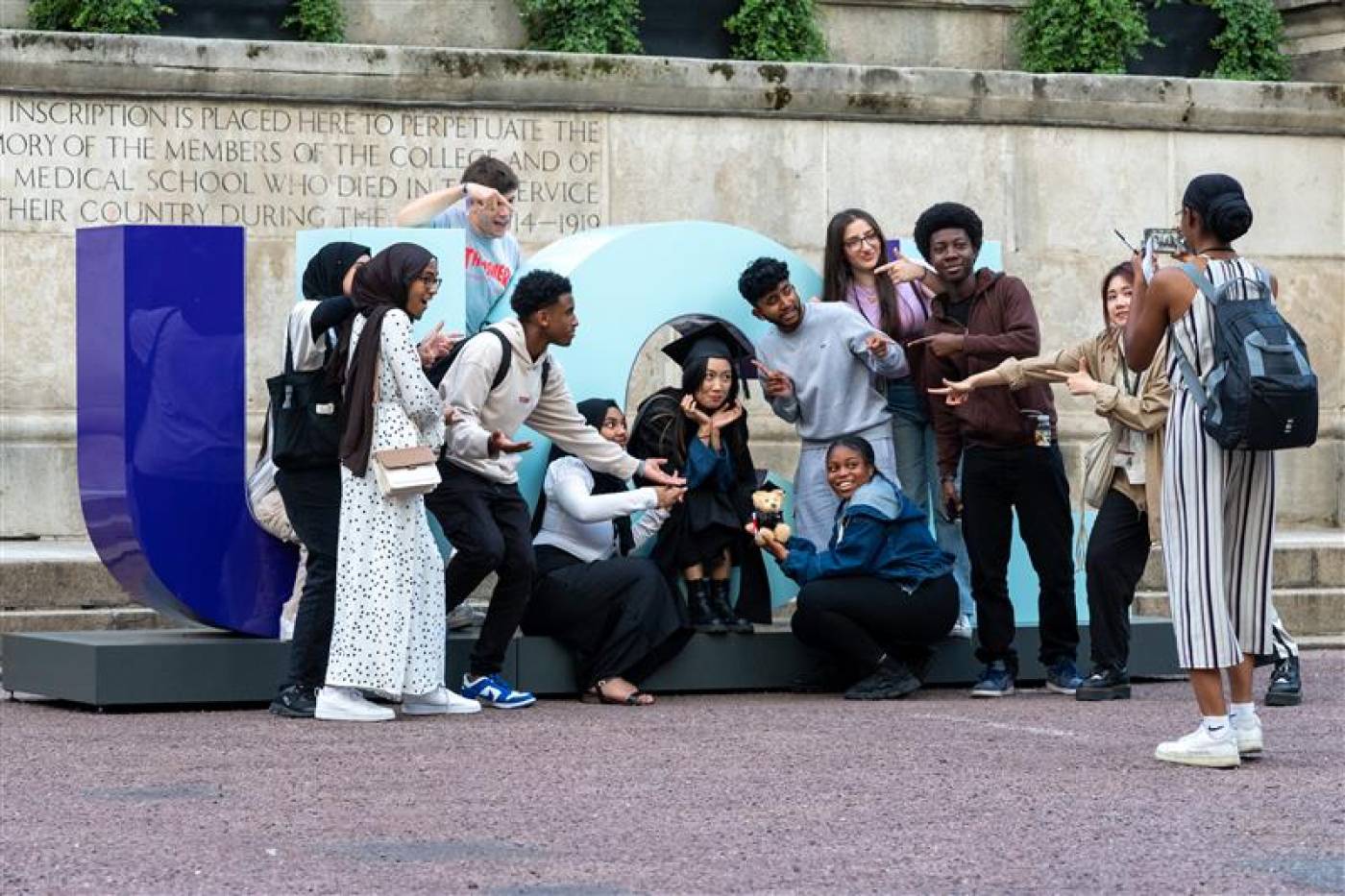
Students celebrating with UCL graduate
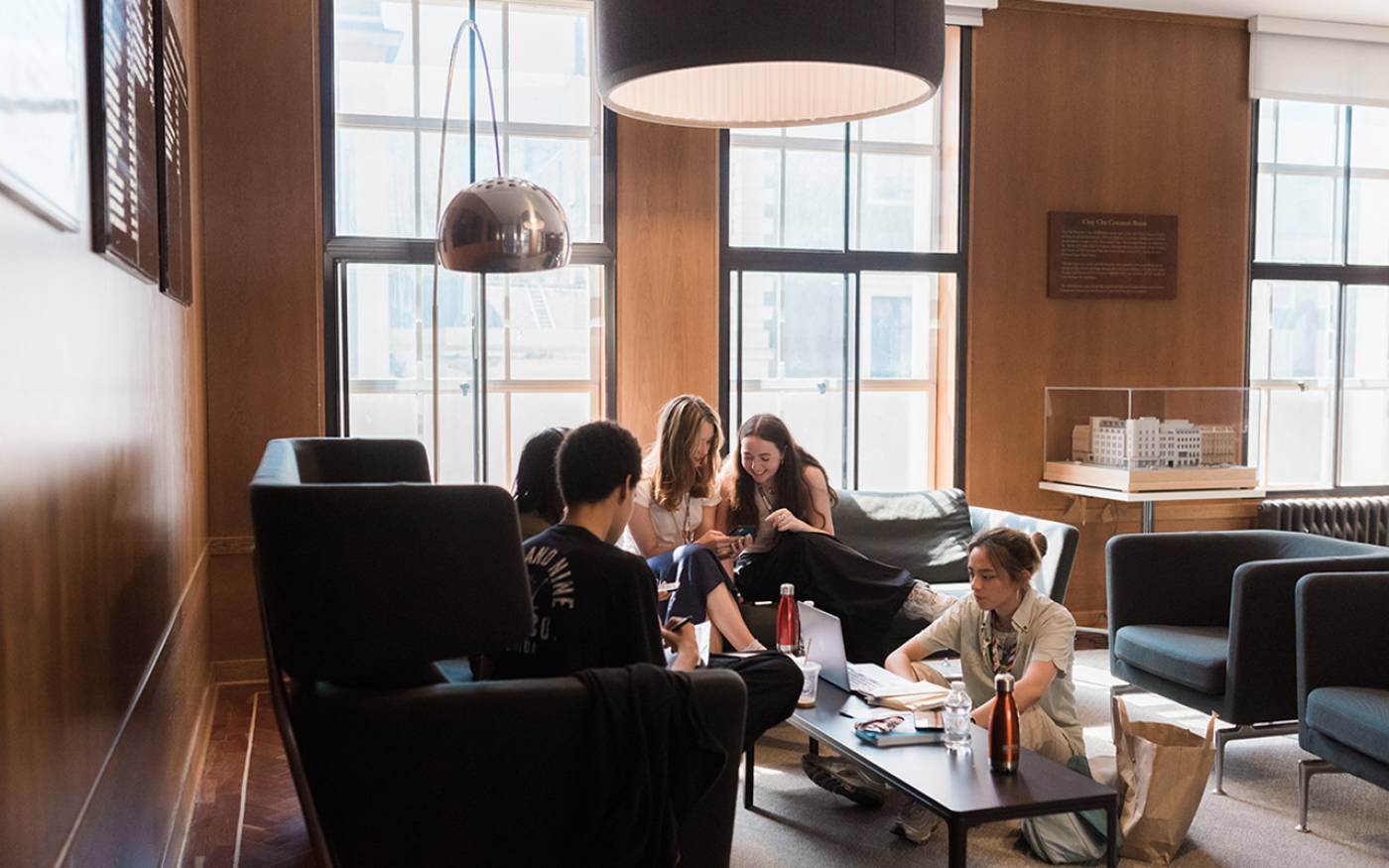
Summer school students work together in Law building
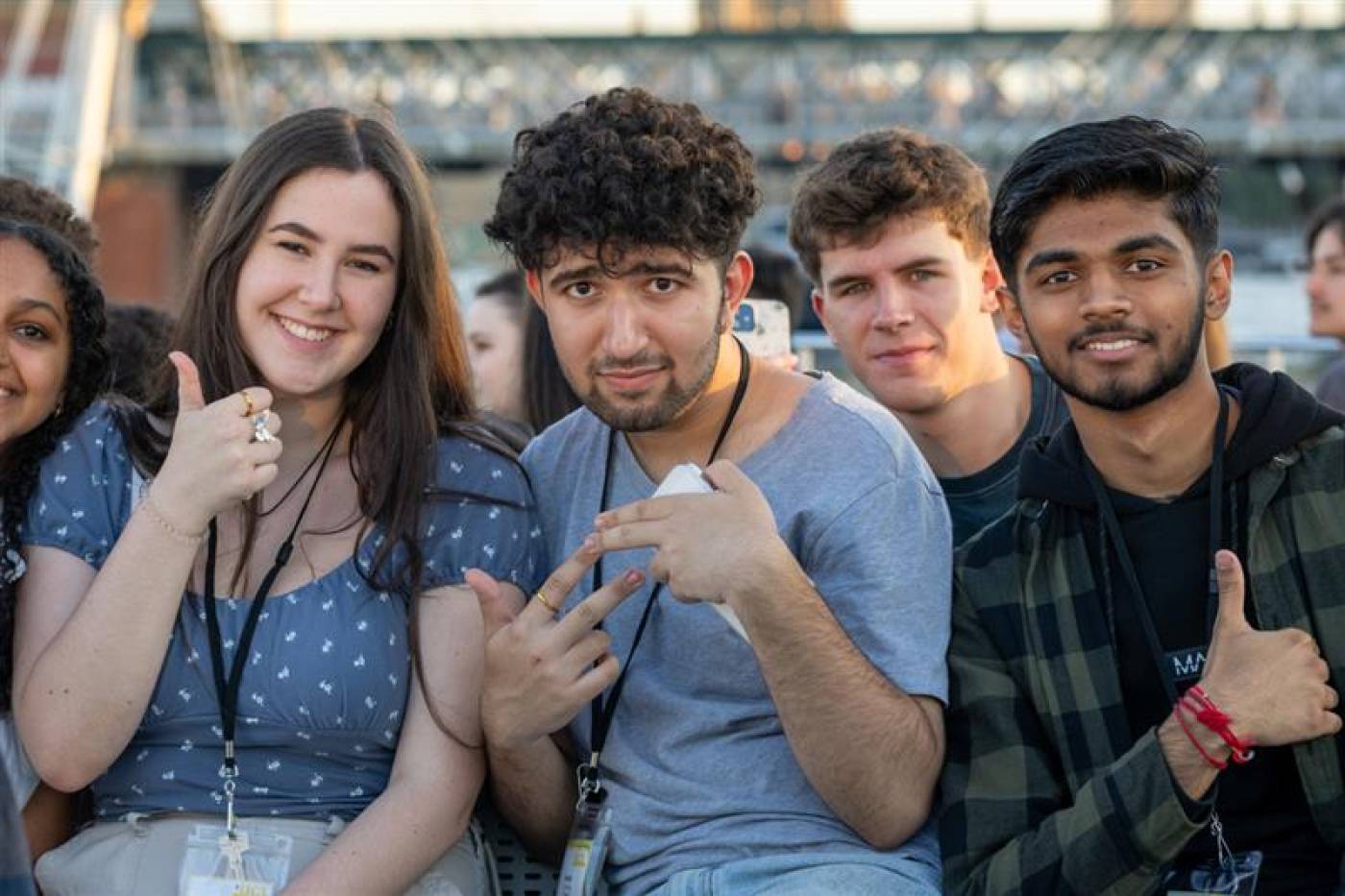
Students enjoying evening activities
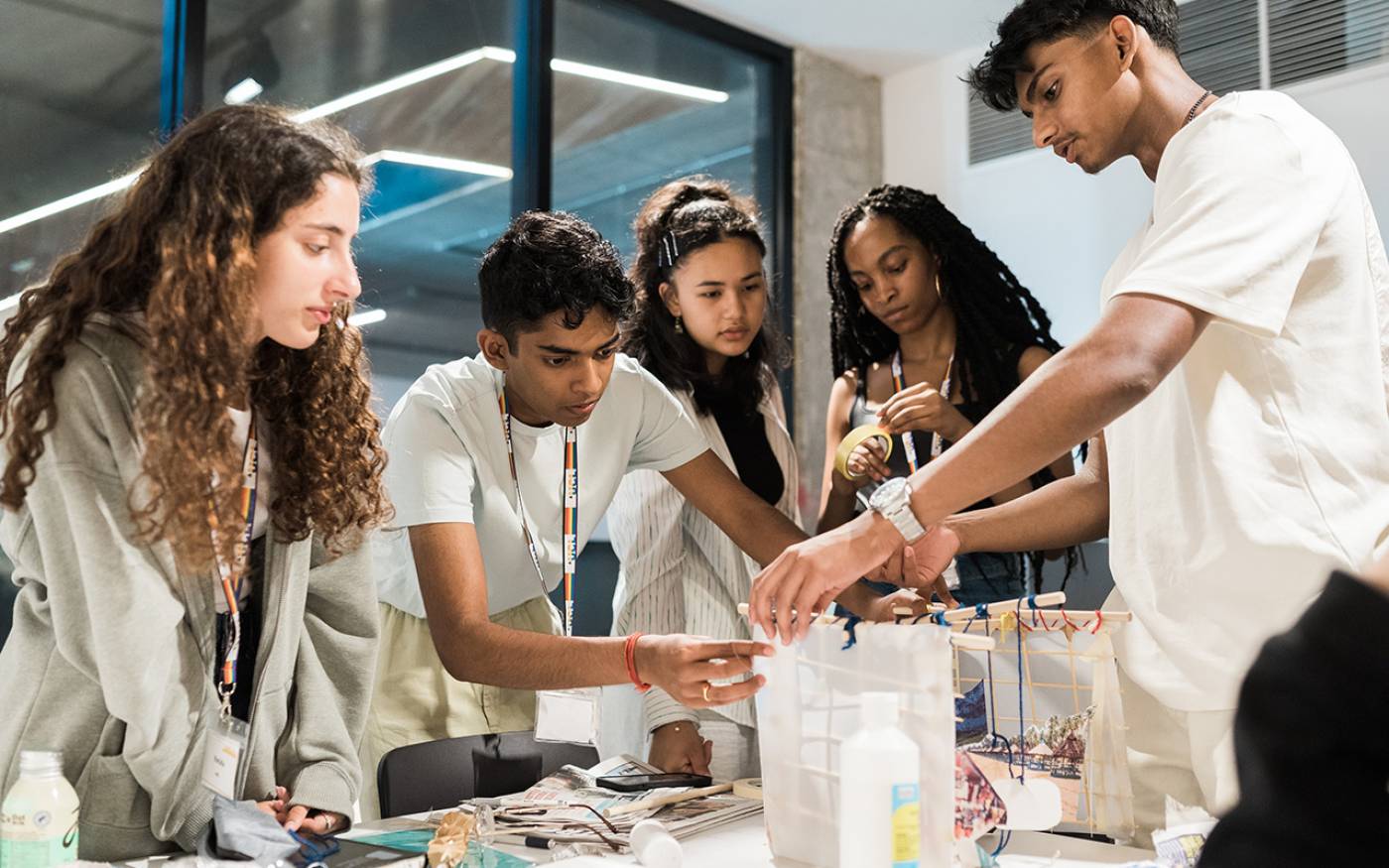
Architecture summer school students working on their project
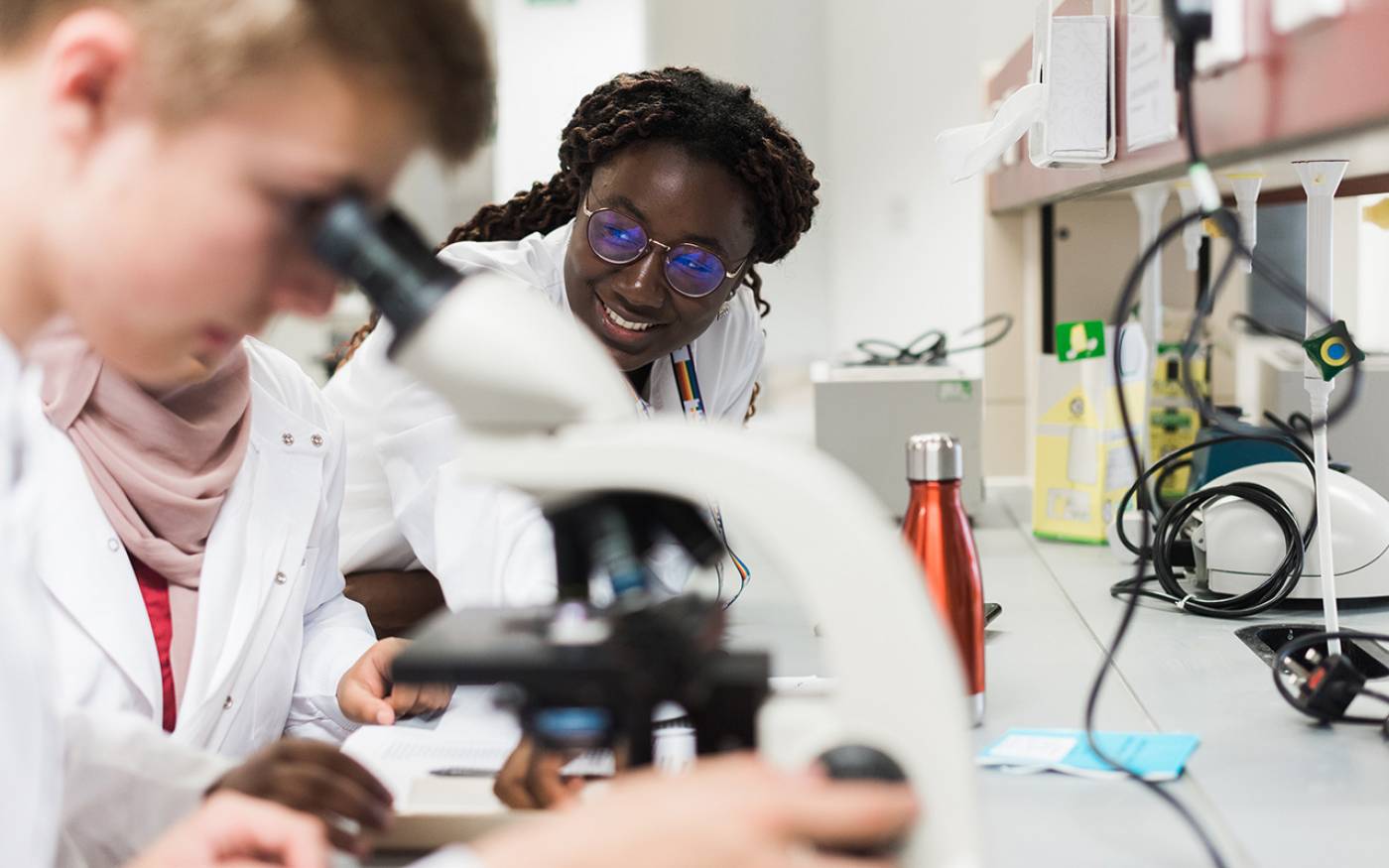
Summer school students in the lab
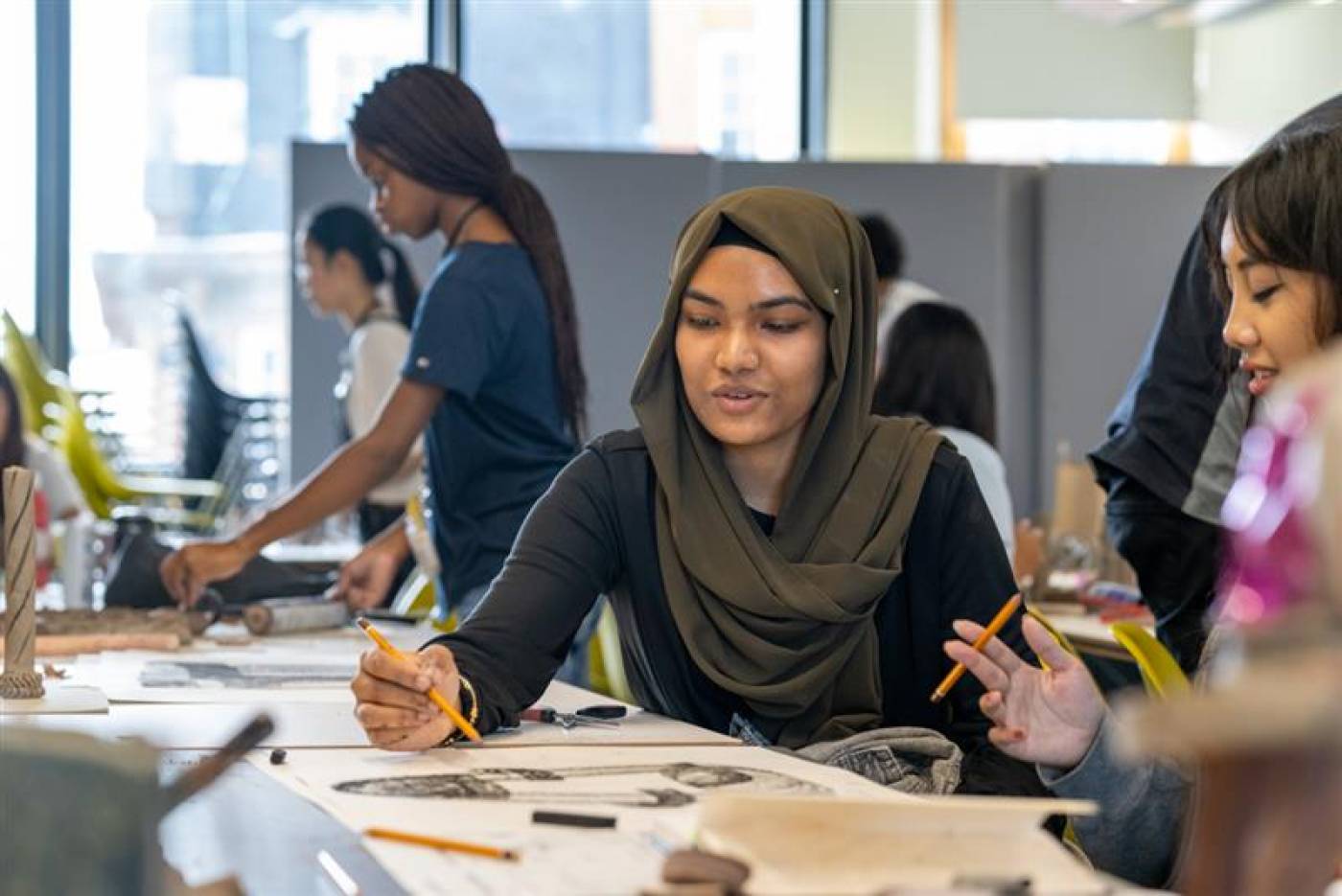
Students working together on an academic project
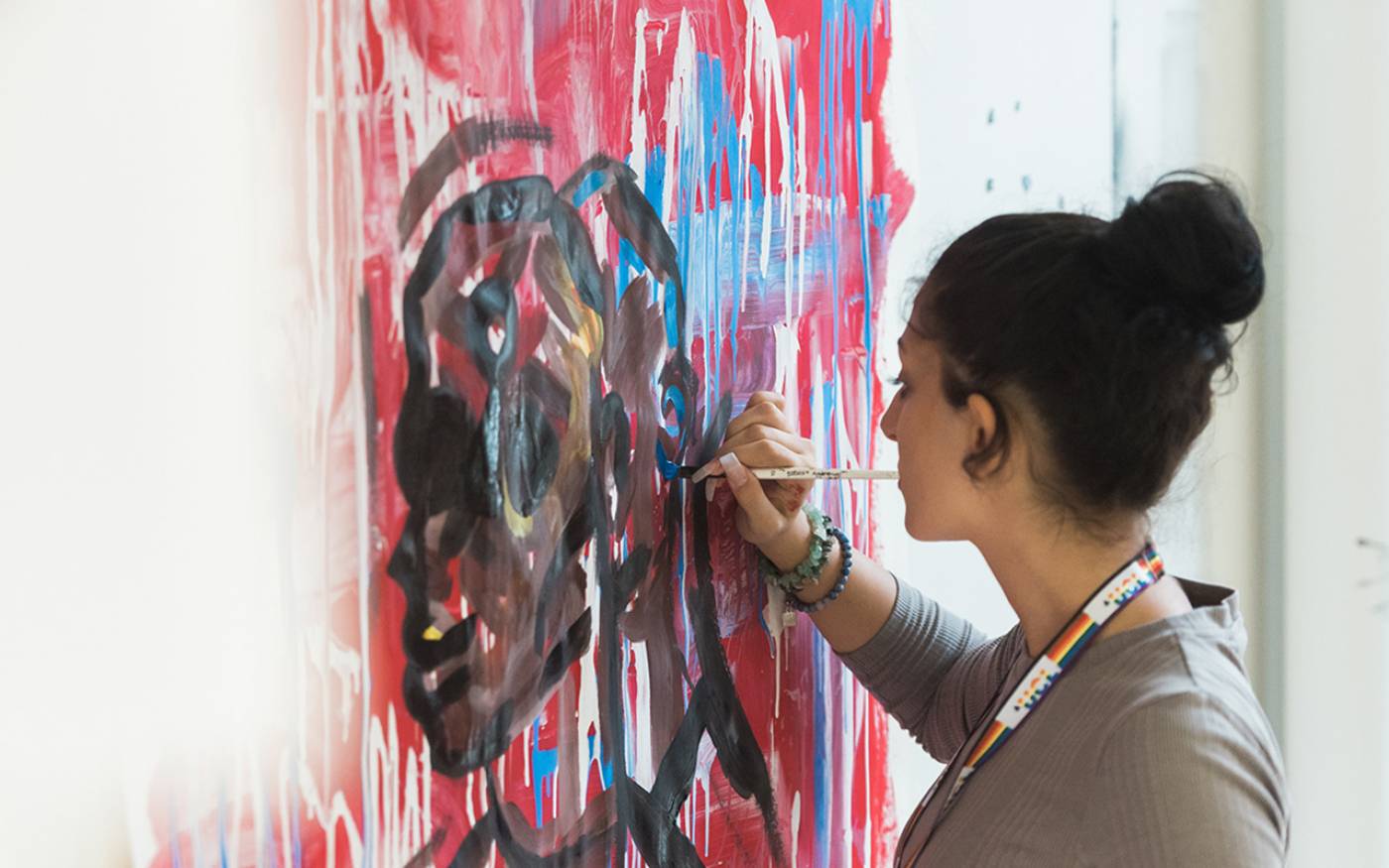
Fine Art Summer School student working on their final project
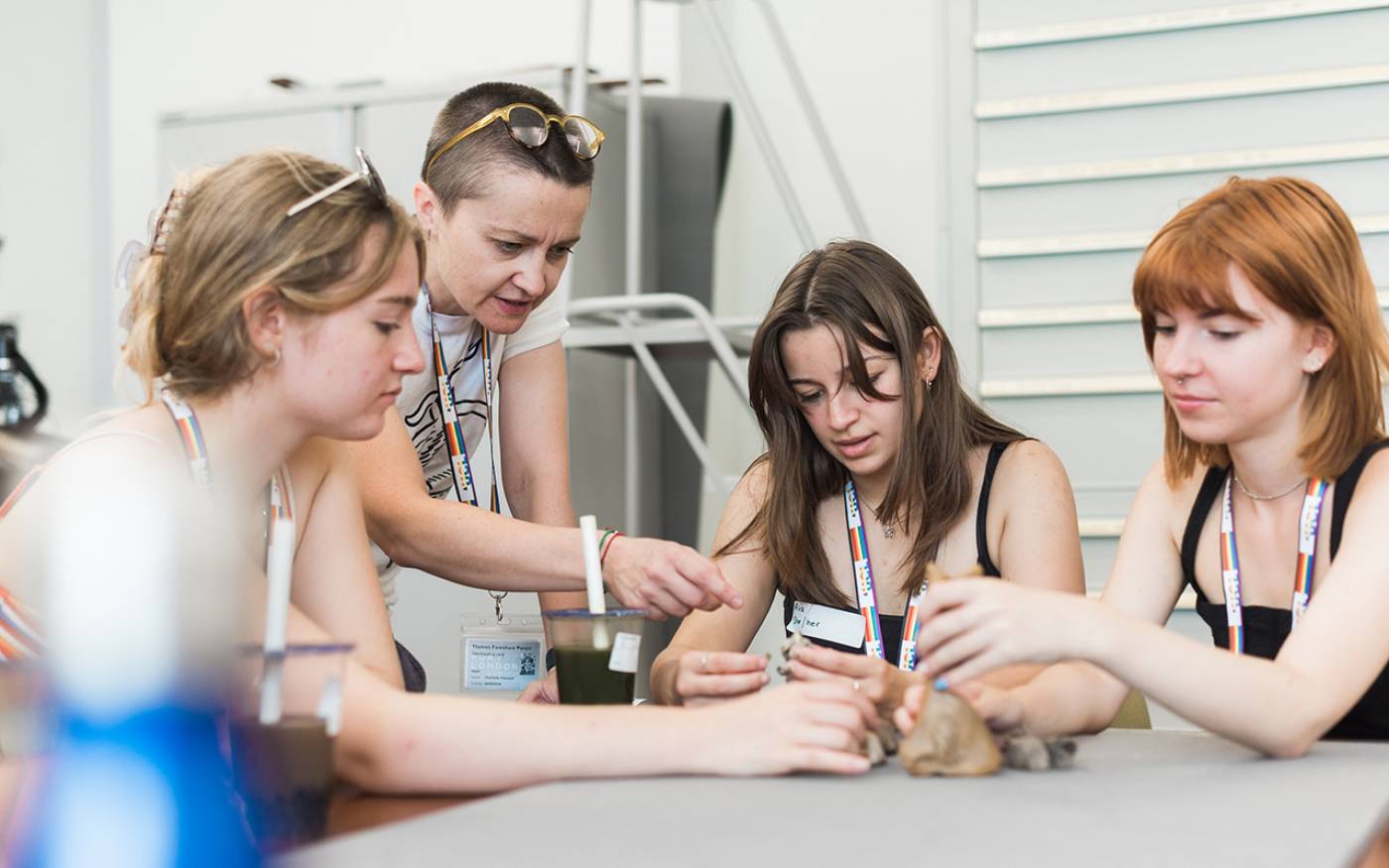
Archaeology summer school students examining bones
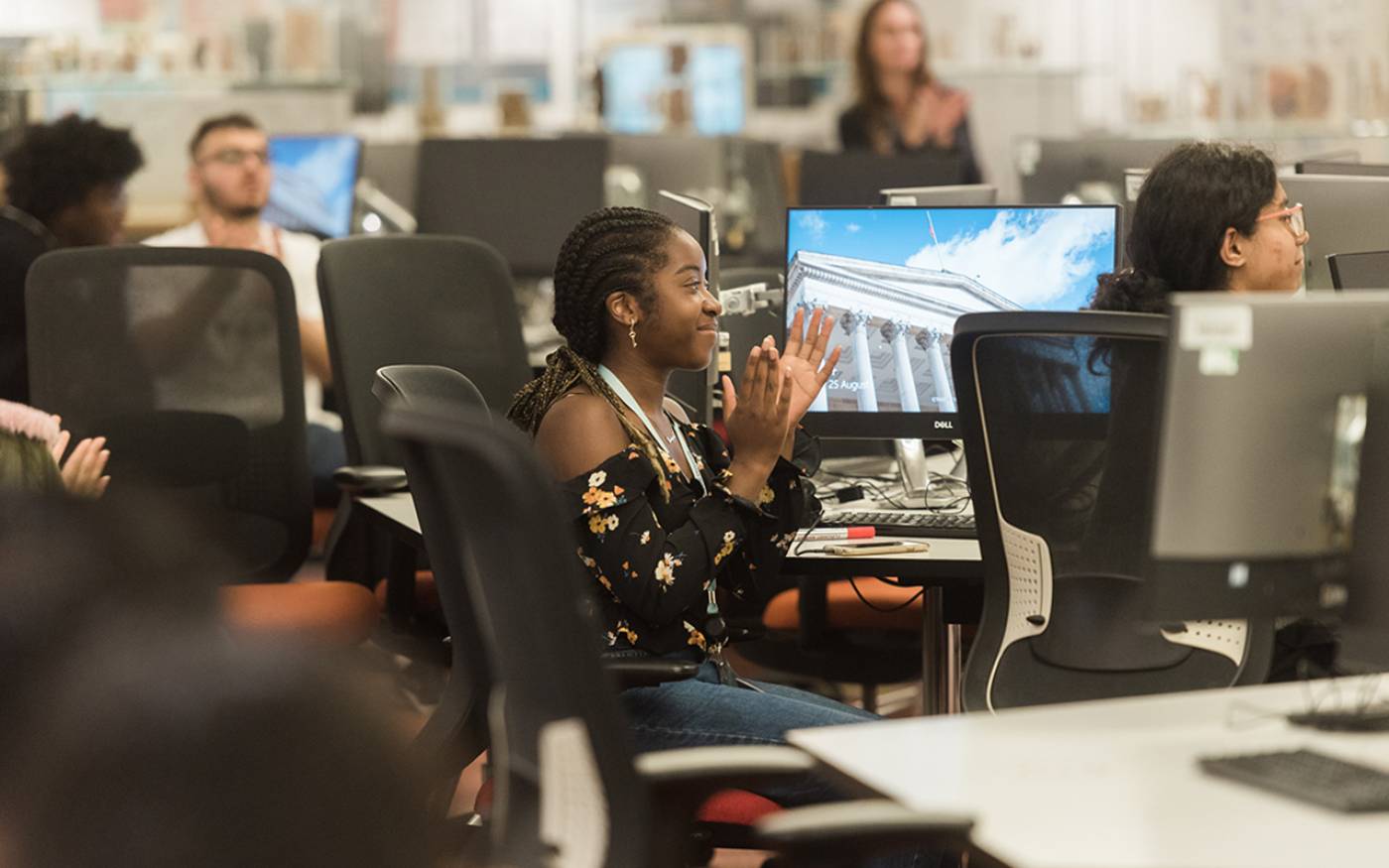
Student at the final day of the Chemical Engineering Summer School
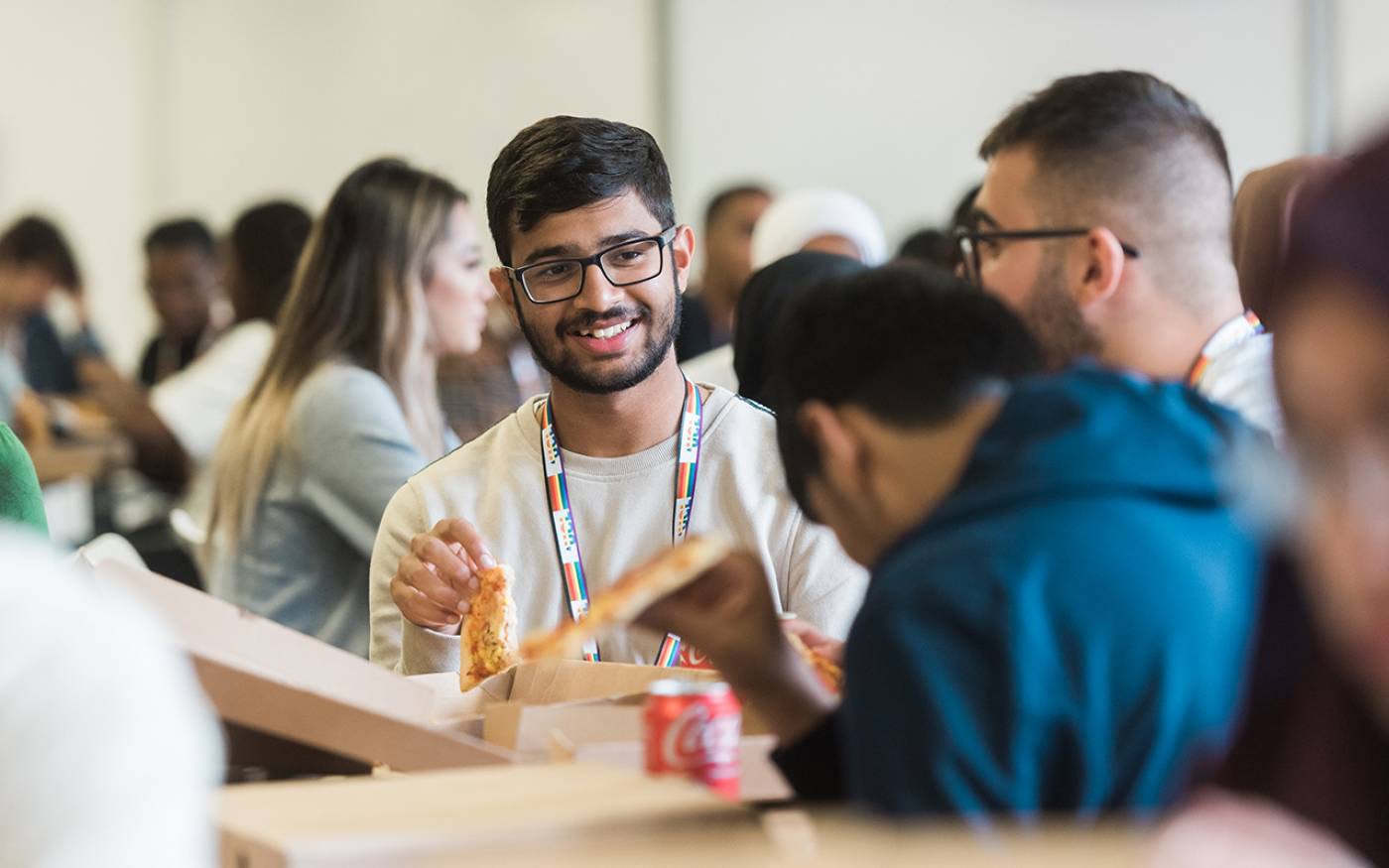
Summer school students enjoying pizza at final day celebration
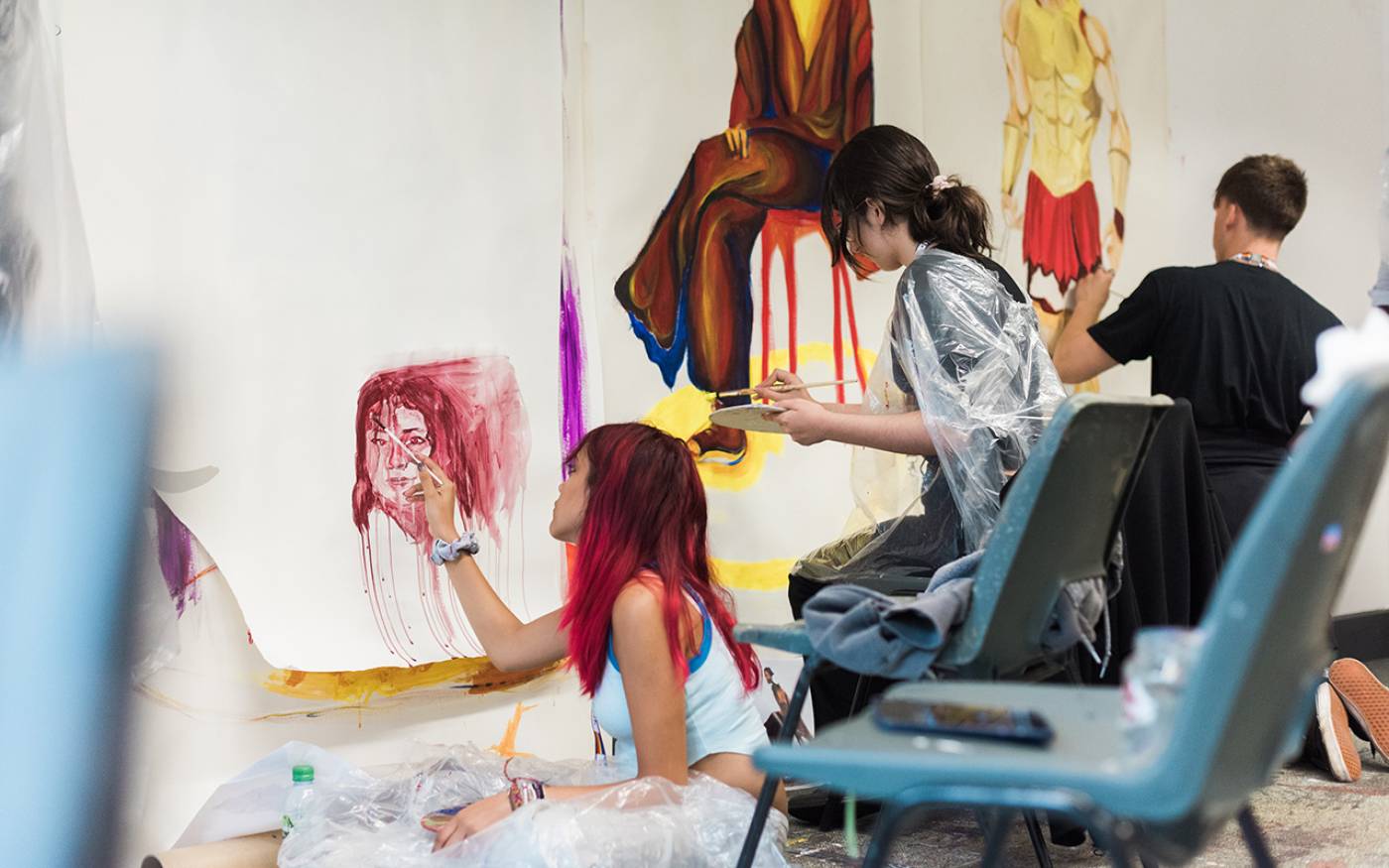
Fine Art Summer School students working on their final projects
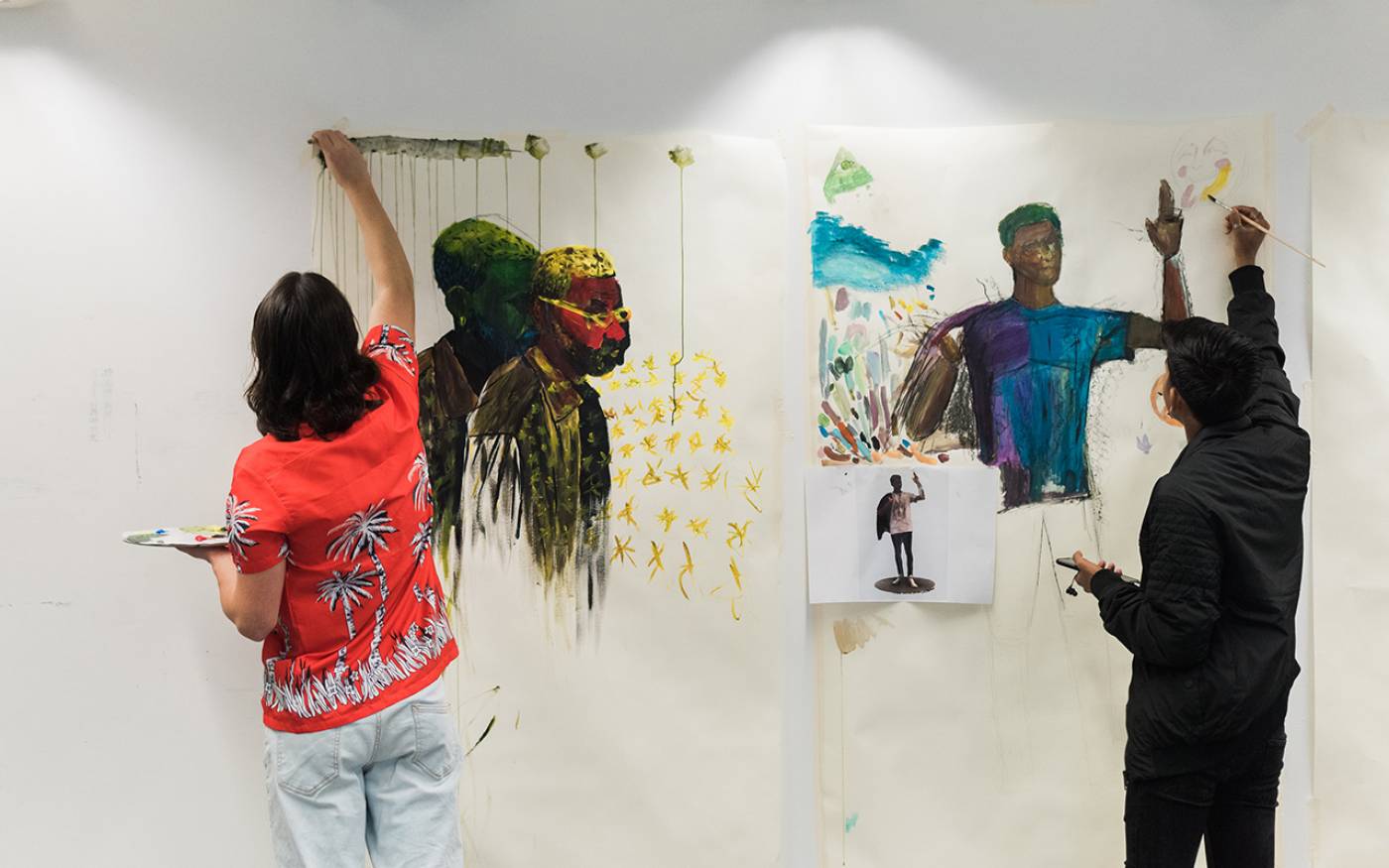
Fine Art Summer School students working on their final projects
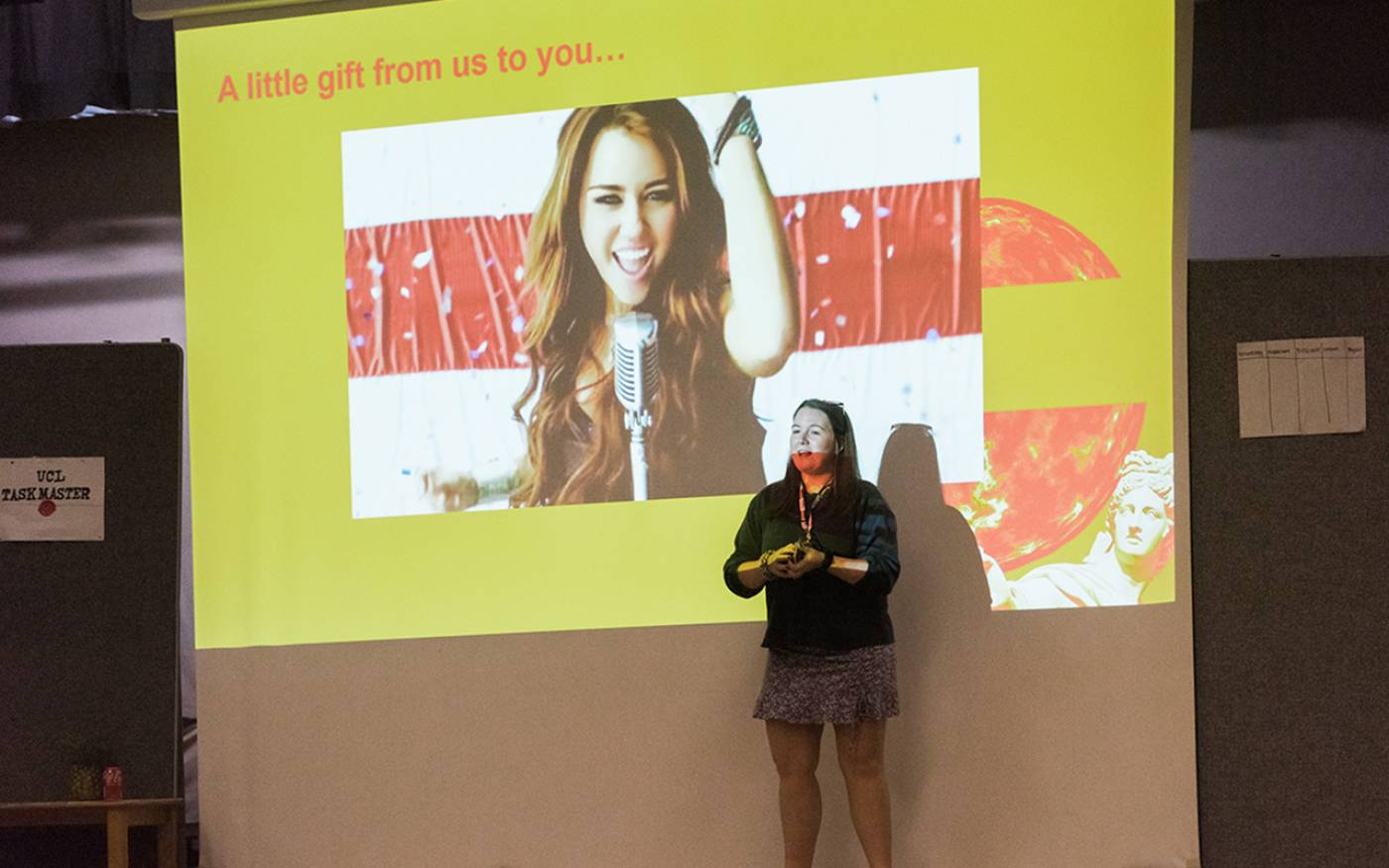
Summer School lead delivering wrap-up and final celebration
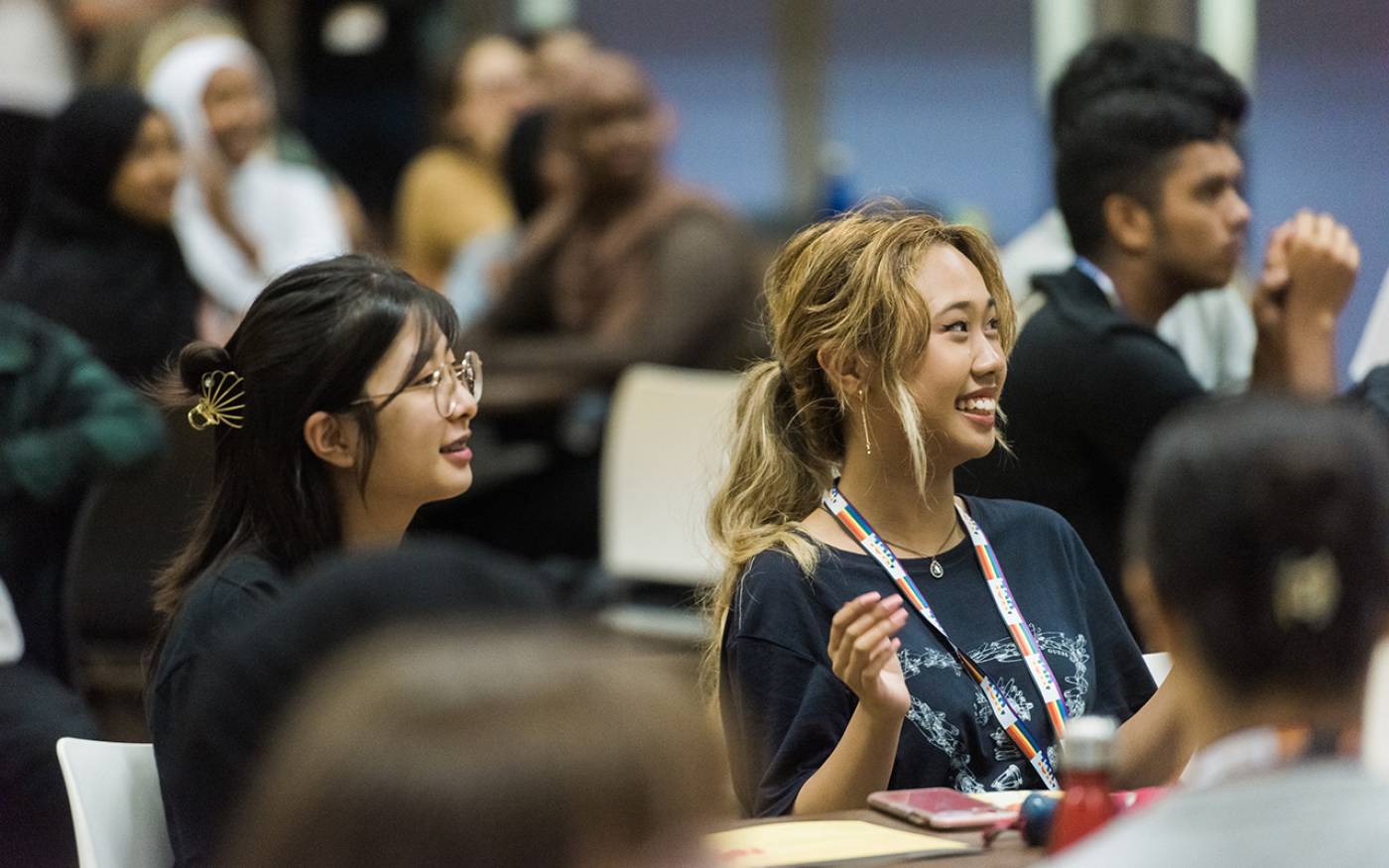
Summer School students at final celebration
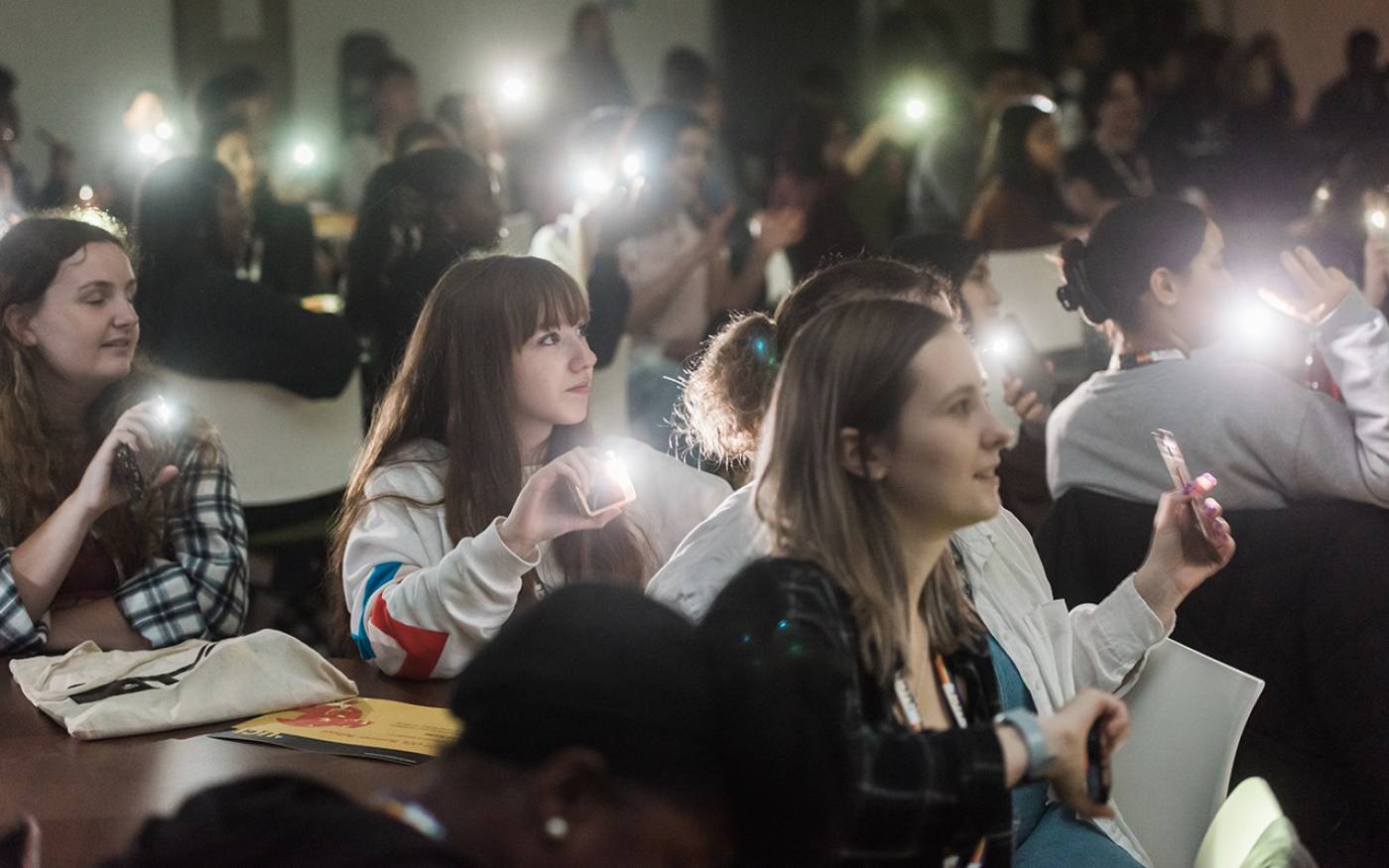
Summer School students enjoying a final send-off
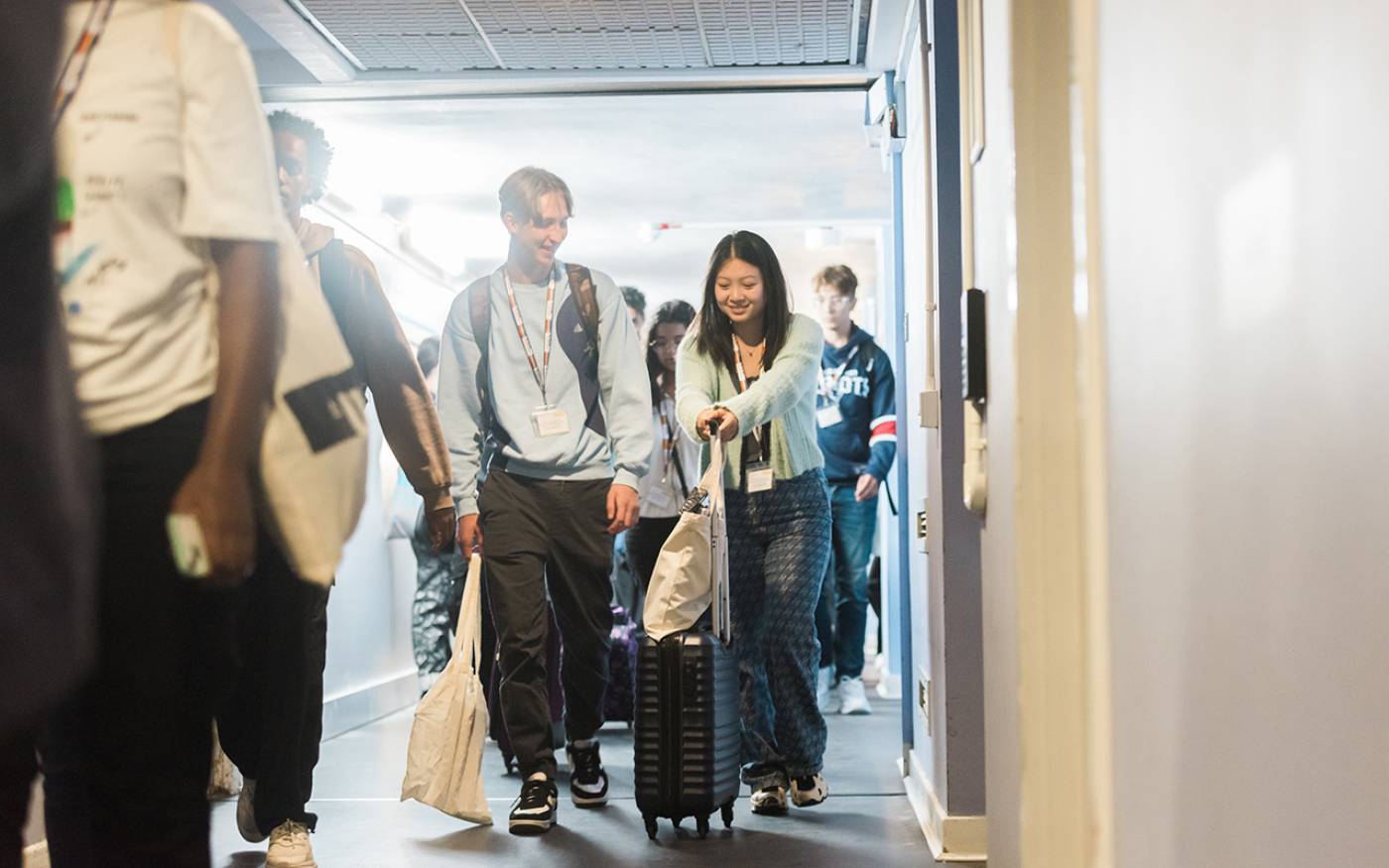
Heading home after the final Summer School
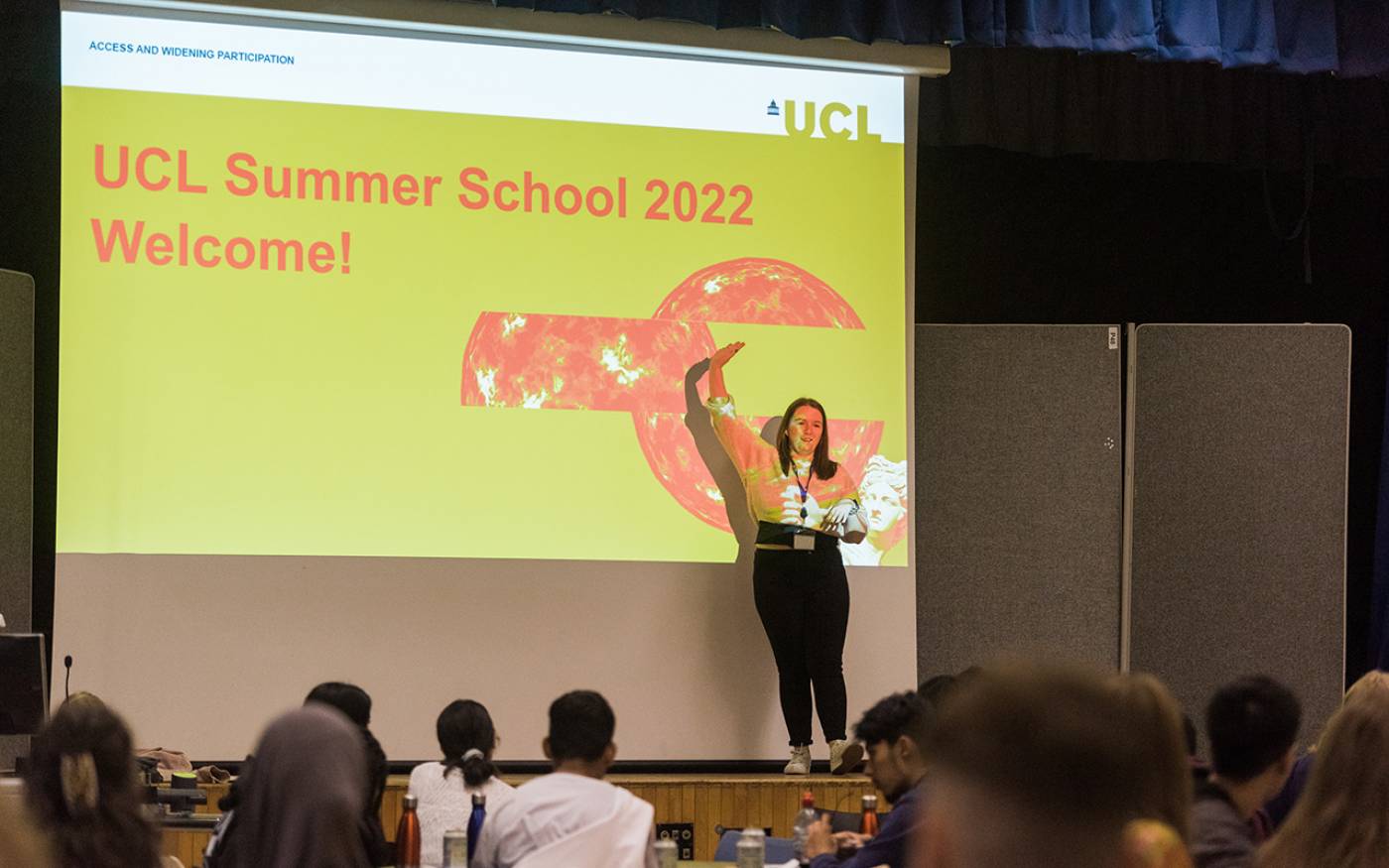
Scholarships and bursaries advice at the first Summer School Welcome
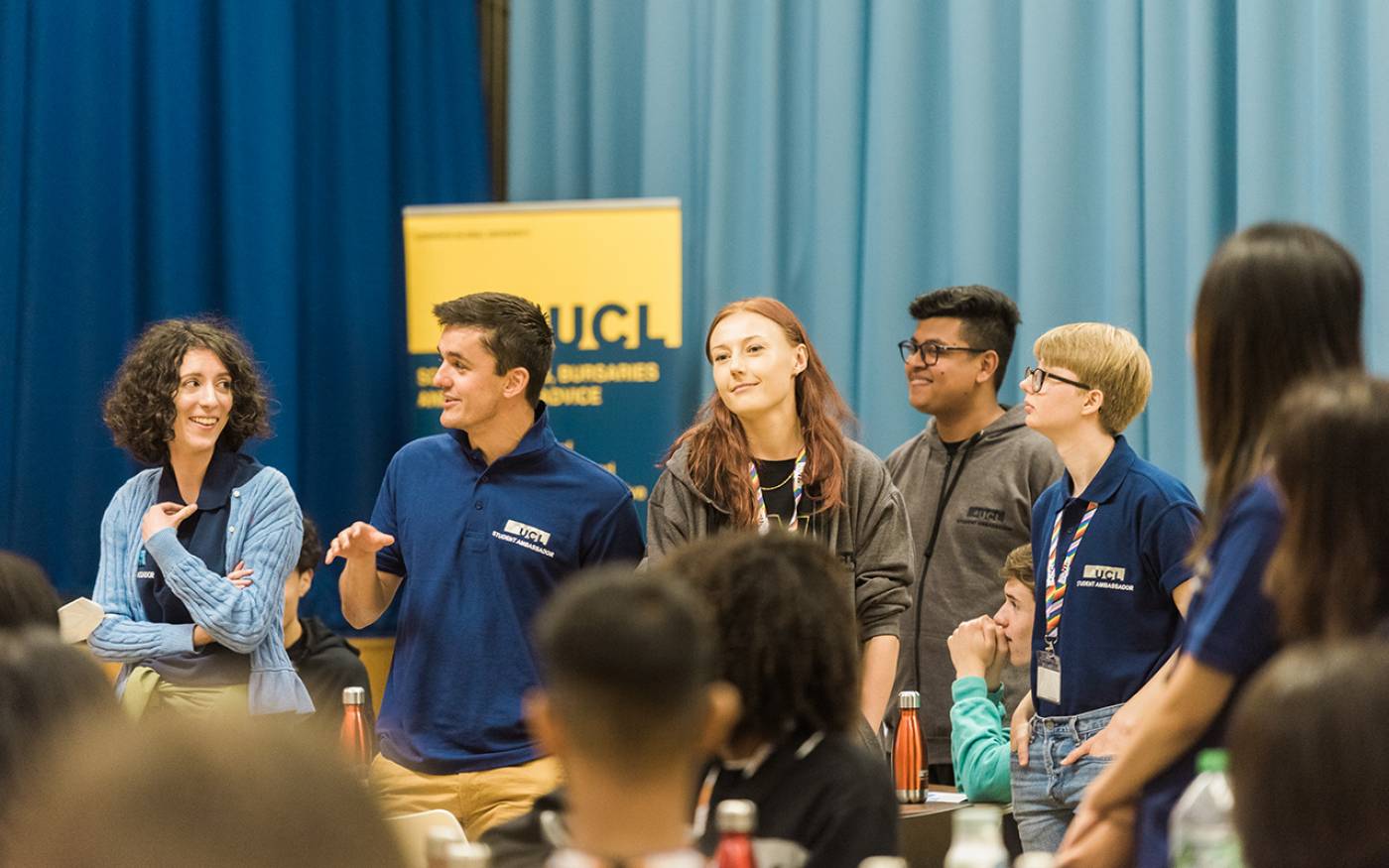
Student leaders at the Summer School welcome
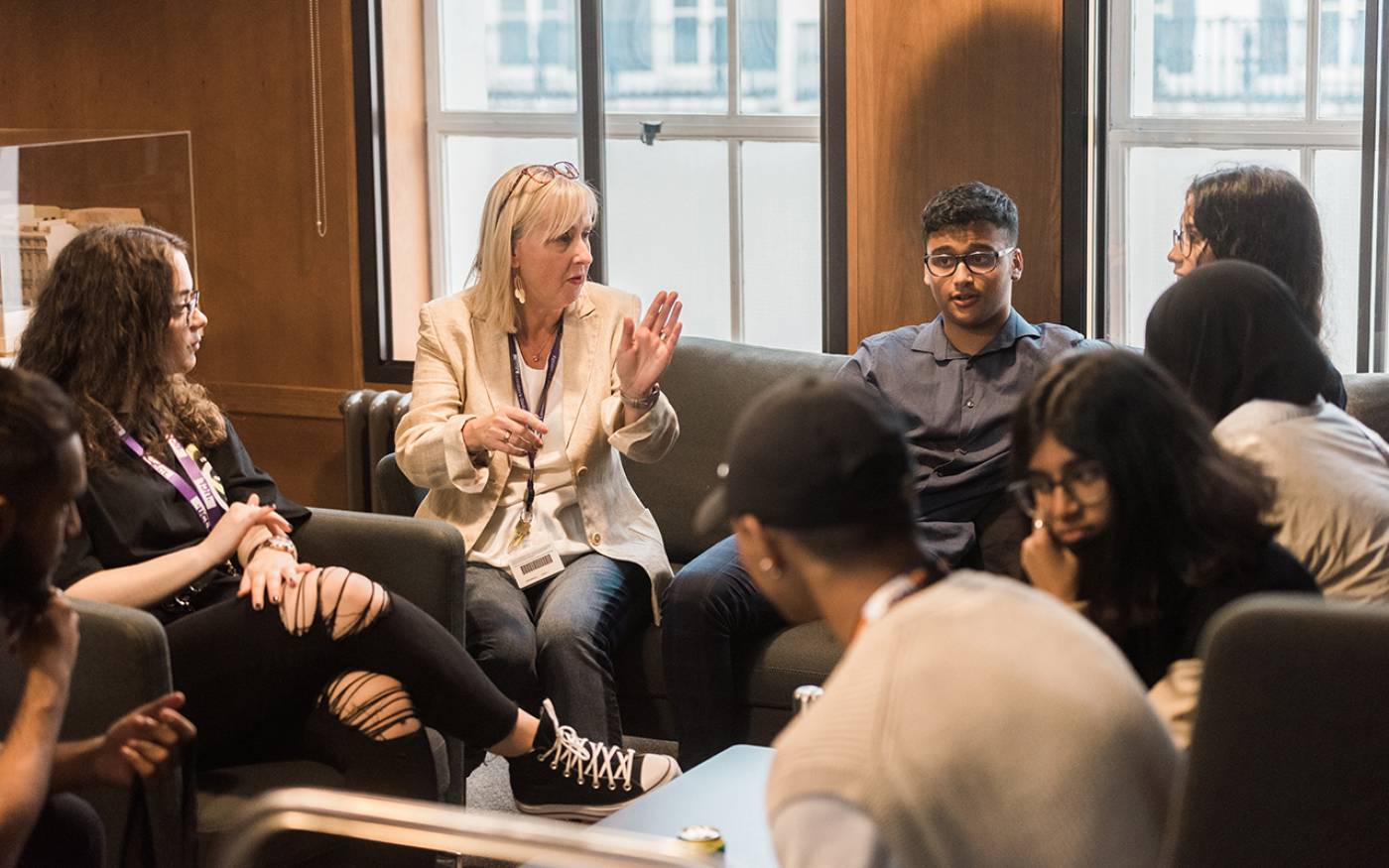
Summer School students listening to Law academic
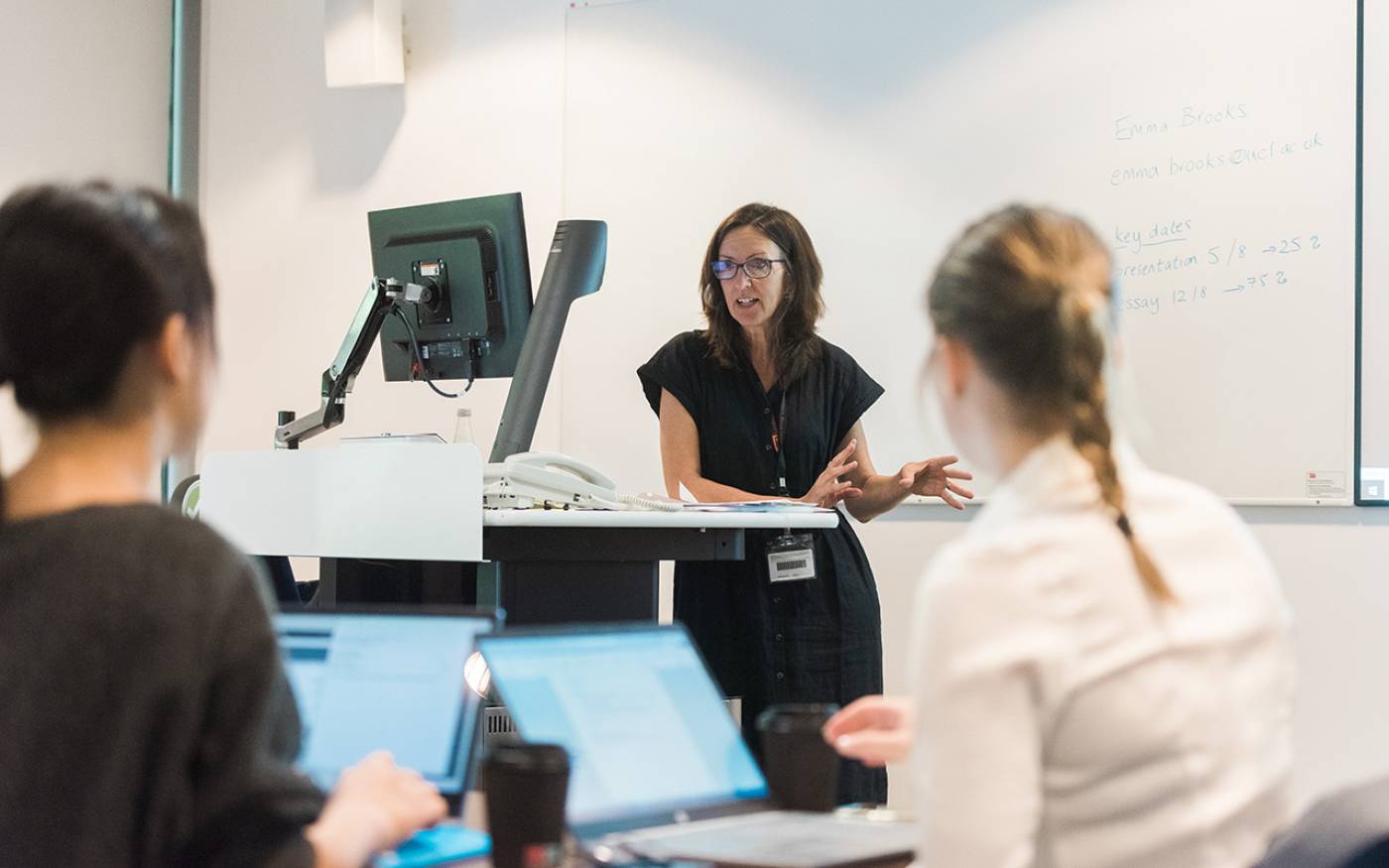
Academic delivering tutorial at Summer School
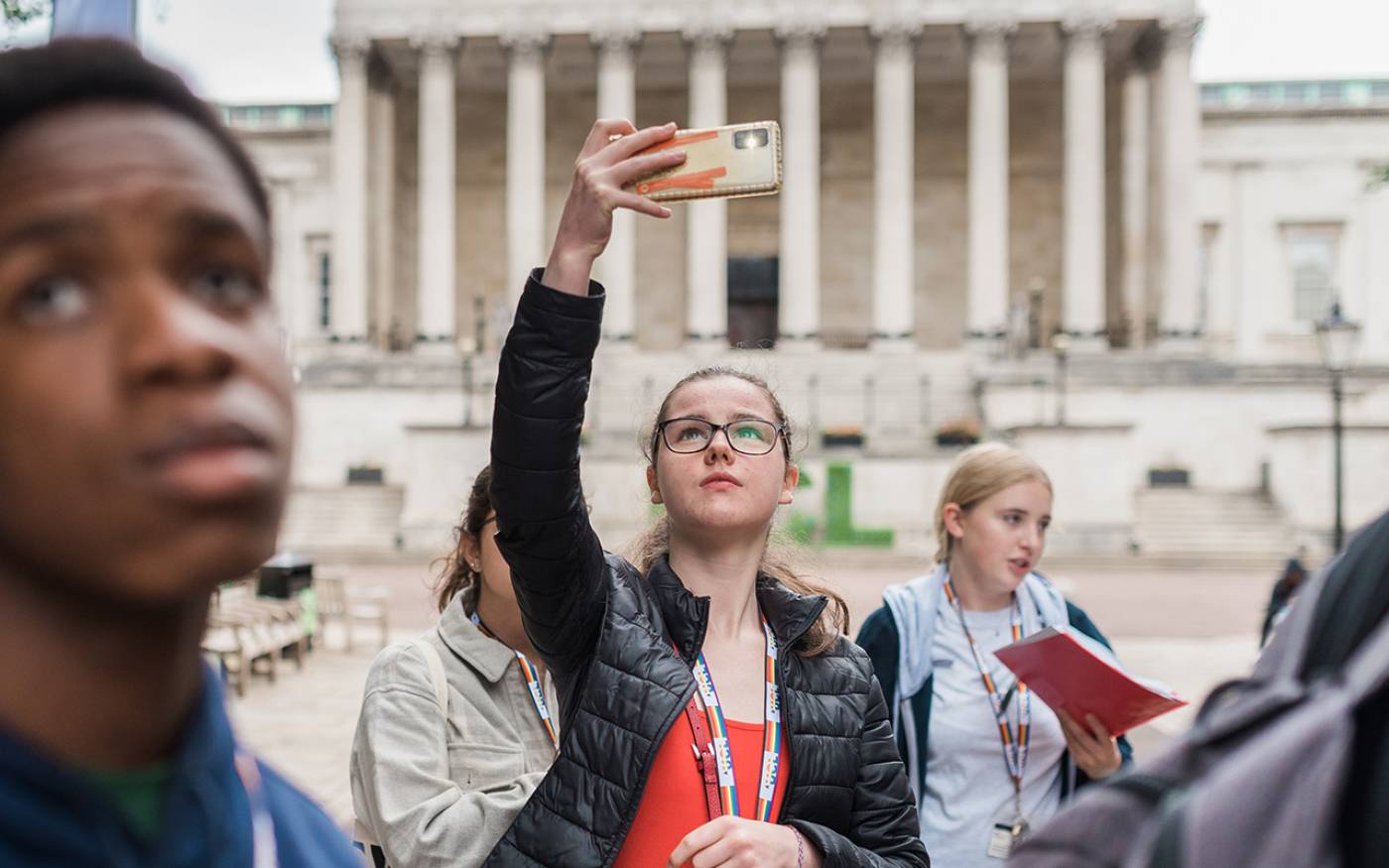
Summer School student taking photos on campus tour
The Summer Schools, give you the chance to gain vital skills such as time management, organisation, and teamwork. Our friendly Student Leaders (current UCL students) will be on hand to answer any questions about your work, living in London, studying at UCL, or university life in general.
*S5 in Scotland or Year 13 in Northern Ireland
What can I study on the Summer School?
Week 1: Monday 22 to Friday 26 July 2024
- Psychology and Human Development
Why do we procrastinate and how can we stop it? How can we reduce bullying in schools? Does music impact our language and wellbeing? These are examples of some of the research projects being conducted by the staff who teach on the UCL Psychology and Education undergraduate degree.
The Summer School will involve interactive sessions that will give you a taster of our areas of research and how it can be applied to real-life settings (e.g., in Education). You will take part in real psychology experiments and gain hand-on experience of different research tools.
You'll discuss the validity and reliability of different psychological measures; then debate the strengths and weaknesses of different tools available to help us measure human thoughts, feelings and behaviours.
By the end of the Summer School, you will have a clear understanding of:
- what psychology is;
- the different areas of study on the Psychology with Education degree;
- the skills required to pursue a career in psychology.
Overall, the Summer School aims to provide an experience of studying at University and we will provide you with advice around the application process and future career pathways in Psychology and Education.
- Chemical Engineering
Chemical Engineering is all about changing raw materials into useful products you use everyday in a safe and cost-effective way. Chemical Engineers understand how to alter the chemical and/or physical state of a substance to create anything from face creams to fuels.
Through our Summer School, you will learn more about what it is to be a chemical engineer, by becoming familiar with some basic chemical engineering concepts and their relevance to a wide range of sectors through several exciting activities.
You will be involved in experimental laboratory sessions to introduce you to the fundamentals of how chemical processes and chemical reactors operate. You will also be engaged in some computational workshops to understand how process simulation can be used to design, analyse and optimise chemical processes.
To finish off the week, you will put your new skills to the test and compete in groups to complete a Chemical Engineering design challenge! You will also learn more about careers in Chemical Engineering through a series of talks with speakers from the department and from the industry.
Are you a creative problem solver? Would you like to learn how to think like an engineer? Do you want to use Maths, Physics and Chemistry to make a positive impact in the world? Then the UCL Chemical Engineering Summer School would suit you – we hope to meet you this summer!
- Languages and Cultures
Do you speak more than one language? Are you already studying a language or even two? Do you like exploring literature, films, art, music, food and all sorts of other cultural aspects of other countries? Are you curious about what studying languages and cultures at university would be like? Then come to the UCL Languages and Cultures Summer School!
The School of European Languages, Culture and Society (SELCS) teaches no fewer than 11 different languages, and alongside these languages we also have a vast range of courses in everything cultural: French cinema, Italian Renaissance study, Latin American poetry, German medieval comic tales, material ‘stuff’ in the Viking age, Dutch sociolinguistics, and so much more.
The Summer School will draw on as much of these languages and cultures as we can fit in one week through a combination of seminars and workshops. There will be lessons in French, Spanish, and German for those of you who study these languages, as well as some sessions with new and lesser-taught languages (like the Scandinavian ones). We will introduce you to our collections at UCL showing you how we use these in our teaching.
To set it all up, we will start with considering what how and why we learn foreign languages. The weeklong project task will be based on this session, while allowing you to use examples from all the other classes to explore the connections between language and culture even further.
- Mechanical Engineering
Are you creative? Can you think outside the box? Do you like challenges and figuring out how things work? Would you like to make a positive change in the world? Are you passionate about maths and physics - but do not necessarily see yourself as a mathematician or a scientist? Then our Mechanical Engineering Summer School will suit you.
Mechanical Engineering is a challenging, exciting and broad discipline which opens up a very wide range of rewarding career paths for those who have studied it. While automotive and aerospace engineering are among the diverse applications of this subject, it certainly isn’t about fixing cars!
Engineers use insights and discoveries from across the academic spectrum to develop products and processes that truly change the world.
As part of the Summer School you will participate in a mix of theoretical and practical activities which enable you to meet fantastic engineering role models, engage in hands-on workshops and laboratory sessions, as well as receive information related to admissions and future career prospects.
- Global Humanitarian Studies
Are you interested in working in the humanitarian sector, in a career that makes a real difference to people and communities worldwide affected by humanitarian and disaster-related events? Are you thinking about studying something different at university? Join our Global Humanitarian Studies summer school to learn more about what humanitarians do, what it is like to study the subject at university and the careers it will prepare you for.
Our flagship Global Humanitarian Studies undergraduate programme aims to educate and train future generations of humanitarian leaders in the theory and practice of humanitarian action. This multidisciplinary programme will equip you with the knowledge, critical, analytical and research skills, and core competencies grounded in practice to anticipate evolving and emerging humanitarian threats and manage widening vulnerability and crisis response.
Over the course of the week, we will explore core concepts including what humanitarianism is, the fundamental principles and practice behind humanitarian work and interventions, and humanitarian and ethical principles and practice. We will also cover other foundational topics in a 'bitesize' format, such as the impact of climate change, migration, conflict and international relations, health and wellbeing, the role of humanitarian technology and digital innovation and how we respond to humanitarian crises.
You will study important aspects and dimensions such as the legal, social, political, economic, gender, historical, and contemporary contexts of humanitarian and disaster-related events and policy approaches and introductory research methods. You will work together on developing a group research project proposal and will be guided through the process to present your ideas at the end of the week.
Throughout the summer school, you will hear from experts from a wide range of backgrounds and get the chance to talk to them about their specialist areas. You will also meet some of our current students, who will share their top tips about student life, like how to write a compelling personal statement.
By the end of the week you will have gained valuable insight into the subject, honed your practical research skills and met lots of people who are passionate about humanitarianism! We hope to see you there!
- Statistics
The digital revolution has accelerated the amount of data generated every day to unprecedented levels. This creates an increasing need for us to develop skills to understand and extract value from this sea of data. Statistics provides the necessary tools to extract meaningful information from the data to better understand the world around us and to help us make informed decisions.
The UCL Statistics Summer School is aimed at providing you with a unique opportunity to be involved in a wide range of activities designed to give you a taste of student life in the department of Statistical Science at UCL.
You will be immersed in a real-world problem that demonstrates a clear link between theoretical knowledge and how it can be applied in everyday life.
You will use a popular statistical software to build your model to predict defaults on key financial services such as consumer loans, which is an important part in the decision of approving loan applications in the real world.
You will also attend live lectures typically taken by our first-year undergraduate students in statistics and meet our academic staff and current students. If you want to use statistics to make a positive impact on the world, then the UCL Statistics Summer School is for you!
Week 2: Monday 5 August to Friday 9 August 2024
- History
Are you looking for a week out of the classroom and ready to step into the shoes of a real historian?
The ‘Making History’ UCL Summer School draws on the unparalleled historical resources available from institutions close to UCL’s central London campus.
Our Summer School will involve exploring museums and archives such as the British Museum. We’ll introduce you to exciting historical sources not seen at school, as well as new historical approaches currently being used reconstruct the past, such as the role of places, spaces and objects.
You’ll hear stimulating lectures from experts on a variety of historical topics and get involved in cutting-edge debates. Working closely with some of our finest historians, we’ll help you use the skills you have learned to research a historical artefact of your choice and present your findings. Prepare to make history!- Pharmacy
Are you a Scientist at heart? Do you want to be a clinician in practice and a professional at the forefront of healthcare? Do you have an interest in science and want to learn how this can help make a difference to people’s lives? If so, pharmacy could be an area for you to explore further.
This Summer School is the perfect introduction to the discipline of Pharmacy and the MPharm degree at UCL.
You will gain an insight into the journey and life of a Pharmacy student at UCL. The programme covers a diverse range of themes, from fundamental chemical science through biology and pharmacology, as well as finding out more about the different pharmacist roles and how this health profession can help improve outcomes for patients.
You will get hands-on experience which include a variety of laboratory classes, practical sessions and practising clinical skills. You will also meet academic staff and students who will be there to support you and discuss their experiences into their pharmaceutical careers.
- Architecture
The Bartlett, UCL’s Faculty of the Built Environment, is excited to invite you to the UCL Architecture and Built Environment Summer School.
Through a series of lectures, workshops and hands-on design and creation activities, you will have the opportunity to see what makes The Bartlett ranked number 1 in the world in the Architecture and Built Environment field (in 2023 according to the QS World University Subject Rankings) and remain #1 in the UK for Architecture and the Built Environment for the ninth year running.
You will learn new ways of recording your observations and ideas through sketching, drawing, photography, collage, film, model-making, and writing. You will receive a holistic overview of the different subject areas within the Built Environment and be taught by academics from different departments who are specialists in their field.
There will also be an emphasis on providing university application information, advice and guidance, specifically covering portfolios. All work produced in the Summer School can be used in your portfolios when applying to university.
What more could you ask for? Come and join us and find out what makes us so great yourself.
- Crime and Forensic Science
Are you interested in understanding how crime is studied? Have you ever wondered how evidence is collected at a crime scene? Do you want to know about investigating serious crime? Are you thinking a future career in criminal justice? Then this is the summer school for you.
The Department of Security and Crime Science are offering a 4-day summer school, where students will be introduced into the world of studying crime and forensic science at one of the country’s top Universities.
The course will introduce students to concepts of prevention, detection, and disruption of crime, from a policing, security, and forensic science perspective.
The summer school will include lectures from world experts in the fields of policing, intelligence, and forensic science, and will include workshops where students are introduced to criminal justice practice.
The subjects covered in the summer school include organised crime, terrorism, crime scene investigation, and policing. Students will be asked to work on individual or groups projects throughout the week, where they will have an opportunity to show case their newly learnt knowledge and skills in crime and forensic science.
- Natural Sciences
At the UCL Natural Sciences Summer School, you’ll discover aspects of life as an undergraduate student enjoying lectures, participating in labs, meeting current students and exploring many parts of UCL.
You might learn about the visualisation of proteins in the Life Sciences, coding to solve Physics problems and maybe the range of spectroscopic techniques used in Chemistry. You will get to try out several of our most popular subjects which may include ones you have not thought of studying.
You may be working in small groups or independently, researching a topic you find exciting, to create a presentation to share what you find interesting. Or you may be creating something entirely different! We have Student Leaders on board who will help to guide your research and refine your presentation and communication skills.
Our current UCL students will talk about the Natural Sciences degree programmes and life at UCL, and you’ll hear about the range of careers a degree in Natural Sciences can lead to after university. We will also discuss applying to this degree programme, including what we look for in applicants and their personal statements.
The UCL Natural Sciences BSc and MSci degrees enable students who want to maintain a breadth of science subjects to shape a unique degree suited to their personal interests. They also allow science subjects to be combined in a structured and coherent programme.
The Natural Sciences programmes are flexible degrees drawing together two elements of physics, astrophysics, mathematics and statistics, chemistry, earth sciences, life sciences, and science and technology studies, equipping the next generation of scientists with skills to move comfortably between different environments.
Week 3: Monday 19 August to Friday 23 August 2024
- Archaeology
At the UCL Institute of Archaeology Summer School, A Taste(r) of the Past, you will explore how science, art and the humanities collide in helping us research, investigate & trial how our ancestors lived, and specifically what they ate, in the past.
The course will include practical study in the classroom, investigating the Archaeobotanical (the study of ancient plant remains within the field of archaeology) collection in the Institute of Archaeology lab as well as experimental archaeology sessions focusing on just how our ancestors processed their food, giving us a glimpse into the diets of the past. We will also be focusing on what this tells us about movement and migration of people & cultures, specifically in London.
You will also go on trips to museums across London, which may include behind the scenes tours led by specialists exploring what we can learn from remains left behind by our ancestors.
You will also visit the Thames foreshore (when the tide is out) working with Archaeologists from the UCL Institute of Archaeology in looking for any remains that can give us an insight into how London ancestors were processing their food.
The course will conclude with a group project about ‘The Archaeology of Food and Diet: let them eat bread?’. Taught by UCL academics, researchers and alumni from the Institute of Archaeology, this Summer School will be a culinary delight!
"Food is our common ground, a universal experience." - James Beard
- Human Geography
In today's rapidly urbanising world, cities are at the forefront of human development and progress. However, this urbanisation process is far from uniform, with each city offering unique challenges and opportunities. But what truly defines a city? What makes it more than just a physical place?
This course seeks to redefine our perception of cities, exploring them as the epicentres of the interplay between 'natural' and social relations that extend far beyond their physical boundaries. We'll dive into the multifaceted world of urban studies literature, examining what urbanisation means to governments, businesses, and the people whose lives are intricately linked with the ever-changing urban landscapes and ecosystems.
The aim is to explore all the possible perspectives from which we can address the cities we live in, not as something closed or bounded - which, politically, lays the ground for critiques of exclusivity. The city has long been a strategic site for the exploration of major subjects confronting society.
This interactive course takes an interdisciplinary approach to understanding the complexities of cities in the modern world. Through a series of diverse seminars, we will explore an array of urban topics, from the influence of political uncertainty to the critical role of infrastructure and power dynamics within urban spaces.
We will study these by analysing three world cities as case studies and getting to do some fieldwork while you’re at it. By examining these diverse urban landscapes, you'll gain valuable insights into how cities function in different global contexts.
The module will culminate in a participatory team project which invites students to examine cities as places that are not 'given' or static but always in an open-ended process of transformation, influenced by human interactions and the environment.
- Fine Art
The Slade School of Fine Art’s Summer School, involves a variety of disciplines exploring hands-on image and object making in relation to fine art digital practices. Each day you’ll explore aspects of these disciplines and their interconnectedness, through practical workshops. This Summer School will enable you to gain some expert tuition in Art, and experience what it’s like to make in an art studio environment.
Our aim is to give you an insight into the studio culture and tutorial approaches you might experience at degree level study in Fine Art. We also hope to instil confidence in working independently, outside of your normal learning environment, and collaboratively with peers. You will be encouraged to experiment, to extend your drawing and making skills and to engage in dialogue with peers and mentors about your work.
The fast-paced working days will be supplemented with supportive discussions and reviews of your work, and a study visit to a gallery. We also will advise on your portfolio should you consider applying for further study.
- Law
The UCL Laws Summer School will introduce you to the study of Law at university, through introductory sessions on law and legal studies and the legal profession, as well as sessions on substantive law in areas such as Criminal, Contract, Family, Public and Employment Law.
You’ll experience Law in London by exploring the Supreme Court as well as how pro bono work is done by our UCL legal clinic in Stratford.
Teaching and learning will be via a combination of lectures, small group teaching and interactive workshops. By the end of the Summer School, you will have a greater understanding of what studying law at university entails and a greater understanding the legal profession and of the paths to becoming a lawyer.
- Education, Society and Culture
Education is at the heart of global efforts to create more fair and equal societies. Based at the world-leading IOE, UCL’s Faculty of Education and Society, our summer school draws on the academic disciplines of history, philosophy, sociology, psychology and cultural studies to provide you with an understanding of how to reflect on issues within education and society as well as ways to become future researchers, educational practitioners, policy makers and leaders of social and political change.
Our summer school introduces you to a broad set of social science subjects and skills, through which you’ll gain an insight into a variety of theoretical viewpoints, and learn how to think about, write about and analyse the ways in which humans and societies develop.
Each day you’ll explore aspects of education, society and culture through activities, visits, project work and mini-lectures. Students studying in year two of our current Education, Society and Culture BA will offer their experiences of the undergraduate programme and introduce you to ways to engage in research.
You will work with our student Education Society (EduSoc) to examine and raise questions about our education system in the UK and create narratives for a better future education for all.
During the four days we visit UCL’s museums and experience how history and education are intertwined through an object-handling activity. We will visit an education department in a museum or gallery in London to help you to explore how the study of education, society and culture relates to potential career destinations, as well as to enjoy the exhibition.
Application Information
- To attend our programmes, you must meet certain eligibility criteria.
- Applications are not selected on a first-come-first-served basis, so applying earlier or later will not affect your application outcomes.
- All applications will go through the Sutton Trust so if you have any problems with the application form, please contact the Sutton Trust.
Frequently asked questions
- How much does it cost?
This Summer School is free. We will pay for your travel to and from the Summer School, as well as your accommodation and meals whilst you stay with us.
- Can my friend/family member take part too?
Only applicants who applied through our system and have been notified that they have a place on the Summer School can attend and take part in the Summer School.
- When will I hear if I have a place?
This varies for each subject. If the application deadline gets extended for any reason, we will email existing applicants to let them know the new deadline date. We aim to have students notified of their outcome in early May. We usually shortlist around 7000 applications for our various activities, so it can take some time. Please be patient, and rest assured that you will be notified whatever your outcome. Please do not email to ask about the status of your application, as this significantly slows down the shortlisting process.
- Do I have to stay overnight?
Staying in Halls of Residence overnight is a vital part of the Summer School and therefore compulsory. We know it can be intimidating to stay in a new place with lots of new people, but we have friendly Student Leaders and dedicated wellbeing staff staying in Halls of Residence overnight to make sure you're supported. However, if you have caring responsibilities or other concerns about staying overnight please email wp.taster@ucl.ac.uk so we can discuss different options with you.
- Do I have to share a room?
No. All participants will be given a single en-suite room, so will not need to share a room or bathroom with anyone else.
If you require an accessible room, please send an email to wp.taster@ucl.ac.uk so we can ensure that this is arranged for you.
- What if I have a disability or have food allergies?
Our Summer School has been designed to be fully accessible and to cater to with allergies, intolerances and those that cannot eat certain foods for religious and/or cultural reasons.
When we send out information to successful applicants, we will ask you for more information about yourself so please include this information at this stage of your application.
If you have any questions or concerns about this, please email wp.taster@ucl.ac.uk and we can discuss options with you.
- I've already applied to another Summer School, can I apply to yours as well?
You can apply to only one subject and to one Sutton Trust Summer School - if you apply for Pharmacy at UCL, for example, you couldn't also apply for Natural Sciences at UCL or another Pharmacy Sutton Trust Summer School.
If you have applied to another Summer School, but which is not in partnership with the Sutton Trust, you can still apply to UCL. We just ask that you make sure the dates do not overlap as you cannot attend more than one Summer School at the same time.
- Will this help me get into university?
Our Summer Schools are designed to give you an experience of what university life is like, especially the academic side in your chosen subject. Participants, therefore, also talk about their experience on the Summer School in their personal statements to apply to university as this is a good way of showing how you have gone above and beyond the curriculum to engage with your subject.
Attending a Sutton Trust Summer School is not one of the ways that an applicant can meet the eligibility criteria for UCL's contextual admissions scheme, Access UCL. However, there is crossover between the eligibility criteria for Access UCL and the summer schools and some students who apply for our summer schools may also be eligible for Access UCL. You can find further information on Access UCL and the current eligibility requirements on the Access UCL webpage.
- My question hasn't been answered here. What do I do?
Email wp.taster@ucl.ac.uk with your query, and we'll get back to you as soon as we can.
 Close
Close

